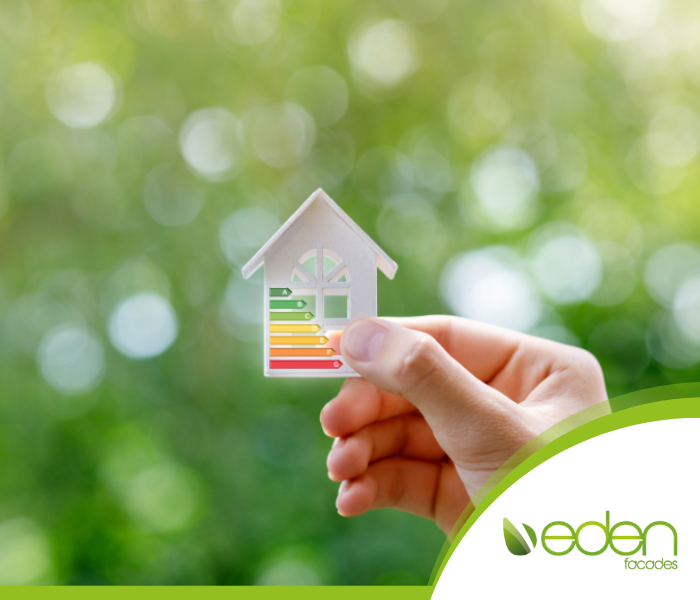A recent announcement by the government has seen changes to energy efficiency rules, and Energy Performance Certificates (EPCs) have been scrapped for residential rentals but not commercial leases, with new requirements coming in 2028 and 2030. While this might seem like some time off, improving your building’s energy efficiency before the deadline will avoid non-compliance penalties, support environmental goals, and attract eco-conscious tenants.
What are Energy Performance Certificates?
Energy Performance Certificates (EPCs) are a rating system designed to evaluate the energy efficiency of a building. A qualified energy assessor, employs a Standard Assessment Procedure (SAP) to calculate a score, typically ranging from 1 to 100, by considering factors such as the building’s construction approach, insulation, glazing, and energy use by heating and lighting systems.
A score of 100 suggests that a building generates all the energy it consumes, such as from a rooftop solar installation. After the SAP number is determined, it is converted into an EPC rating, such as 81 to 91, which corresponds to a B rating.
Starting in 2023, all commercial properties that are leased must have an EPC rating of E or higher. The recent requirement to upgrade to a rating of C has been postponed and will now take effect from April 2028 rather than the initial 2027 deadline. However, the subsequent mandate to attain a B rating by 2030 has not been postponed.
Most analysts believe that those waiting for further delay or relaxation of these regulations are unlikely to succeed, and with an election approaching, Labour figures, including shadow Net Zero Secretary Ed Miliband, have expressed strong opposition to any relaxation in this area.
Why you should care about your EPC rating.
Penalties for leasing a non-compliant commercial building can range from £10,000 to £150,000 per breach, depending on the rateable value of the property. However, energy efficiency is important for reasons beyond just complying with legislation. An example of this can be seen in Rightmove’s energy bill tracker, which applies to residential properties. For most property types, improving an EPC rating from C to B can result in a reduction of one-third in energy bills.
Commercial buildings vary a lot in size and nature, so useful statistics often come from the residential sector with comparable categories such as “two-bedroom flat”. The Mortgage Advice Bureau discusses residential-sector findings that improving your rating by two bands increases property value by about 9%.
How can I increase my EPC rating?
Commercial property owners will likely have taken basic steps such as switching to LED lighting and insulating any hot water tank. Replacing older and inefficient boilers is also sensible, as are heating controls that let you set a temperature room by room. Since temperature control accounts for most of an energy bill, key advice beyond that rests on improving the building envelope, through which heat is lost (or gained in hot weather). Useful steps here include:
- Improving window glazing
- Fitting insulation, such as external wall insulation (EWI)
- Fitting an insulated façade such as a rainscreen cladding system
The benefits of external wall insulation
EWI is a protective and decorative waterproof layer that is attached to the outside of a building. As well as greatly improving thermal performance, bringing the savings discussed, EWI improves thermal comfort for everyone by reducing noise and the risk of condensation and dampness. With the correct specification and installation, the building fabric, shielded by the effects of weather, can be extended by up to 30 years, with little or no maintenance required. Any new exterior to a building is also an opportunity to make the structure new and fresh, with EWI available in a wide range of finishes including paint, tiles, panels or the texture of your choice.
A recent survey by the government found that property prices increase by 3% on average after an EWI retrofit, so there is no need to wait for energy savings to recoup the investment.
The benefits of rainscreen cladding
Rainscreen cladding is a system that is installed onto your building’s inner, structural wall, but is separated from it by an air cavity. Insulation is usually placed within this cavity, although there are other options available.
The benefits of this system are similar to those of External Wall Insulation (EWI), but the double wall construction can further enhance these benefits. The air barrier helps regulate temperature, which in turn reduces heat conduction. During summer, hot air rises out of the cavity and is replaced by cooler air, while in the winter, the air stays trapped inside, keeping the building warm. Moisture will quickly dry within the air pocket, with the inner wall remaining completely separated from the elements.
Rainscreen cladding not only boosts thermal efficiency, which in turn can result in energy bill savings between 30 and 40% but also enhances the external aesthetics of your building, providing an easy-to-maintain solution.
Choose a façade partner you can trust
Both EWI and rainscreen cladding are lightweight systems that skilled professionals can install quickly and easily. Installation is specialist work, however. Performance and lifespan will be reduced if the systems aren’t installed correctly, so it’s important to pick a trusted contractor who can provide references relating to similar, successful projects.
If you’re looking for a reliable and experienced specialist, look no further than Eden Facades. Our reputation speaks for itself, with numerous satisfied clients and successful projects under our belt. If you would like to learn more about how we support you on your upcoming projects, please do get in touch via our contact page.

